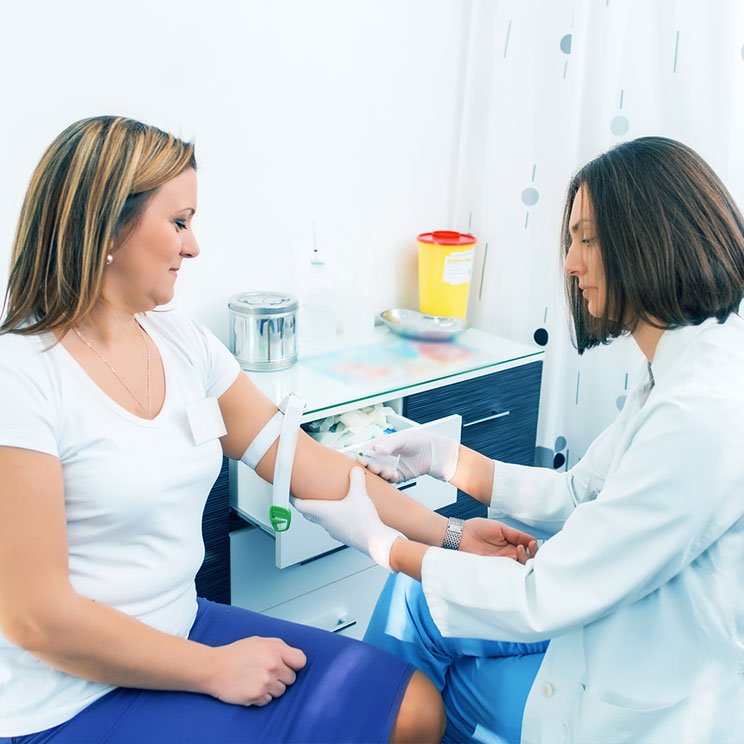How too Train as a Phlebotomist: Complete Guide to Certification, Skills, and Career Prep
if you’re considering a rewarding career in healthcare, becoming a phlebotomist might be the perfect fit. Phlebotomists play a crucial role in medical diagnostics by drawing blood for tests, transfusions, and research. This guide provides a thorough overview of how to train as a phlebotomist, covering essential certification requirements, skills needed, practical tips, and career advancement strategies. Whether you’re just starting or looking to enhance your knowledge,read on to learn everything you need to jumpstart your career in phlebotomy.
Introduction
In today’s healthcare landscape, skilled phlebotomists are in high demand. The role demands precision, compassion, and technical knowledge, making it an ideal profession for those interested in medical science and patient care. Proper training and certification are vital to ensuring you have the necessary skills and knowledge to succeed. This complete guide will walk you through the steps required to become a certified phlebotomist, the skills you need to develop, and practical advice to excel in your new career.
understanding the role of a Phlebotomist
Phlebotomists are healthcare professionals trained to collect blood samples for laboratory testing.Their responsibilities include:
- Preparing patients for blood draws and explaining procedures
- Assembling and maintaining equipment
- Drawing blood using various techniques
- Labeling and handling samples accurately
- Ensuring patient safety and comfort
How to Find the Right Training Program
Starting your journey as a phlebotomist begins with selecting a reputable training program. When choosing a program, consider the following factors:
- Accreditation: Look for programs accredited by organizations like the National Accrediting Agency for Clinical Laboratory Sciences (NAACLS) or equivalent.
- Curriculum: Ensure the program covers theoretical knowledge, practical skills, and clinical experience.
- Course Duration & Flexibility: Programs vary from a few weeks to several months. Opt for a schedule that suits your lifestyle.
- Cost & Financial aid: Compare costs and availability of financial assistance or scholarships.
Top types of Phlebotomy Training Programs
| Type | Details |
|---|---|
| Community College Courses | Typically comprehensive, offering classroom and clinical training |
| Online Certification Programs | Flexible, with some in-person labs and clinicals |
| Technical Schools | Intensive training with practical hands-on experience |
| Employer-Sponsored Training | Often available for new hires in healthcare facilities |
Certification: Your Gateway to a Triumphant Phlebotomy Career
Why Is Certification Meaningful?
While some states may not legally require certification, obtaining certification as a phlebotomist considerably improves employment prospects, demonstrates professionalism, and ensures you meet industry standards.
Certified Phlebotomy Technician (CPT) Certification
The most recognized certification is the Certified Phlebotomy Technician (CPT), offered by organizations like the National Healthcareer Association (NHA) or the American Society for Clinical pathology (ASCP).
Steps to Get certified
- complete an accredited phlebotomy training program
- Gain clinical experience through internships or externships
- Pass the certification exam
- Maintain certification through continuing education
Exam preparation Tips
- Review key topics such as anatomy, blood collection techniques, and safety protocols
- Utilize practice exams and study guides
- Attend review workshops or online prep courses
- Ensure understanding of OSHA standards and infection control
Essential Skills and Qualities of a Successful Phlebotomist
Beyond technical knowledge, several personal skills are crucial to excel:
- Attention to detail: Accurate sample labeling and handling
- Empathy and communication: Comforting anxious patients
- Steady hand and dexterity: Precise blood draws
- Problem-solving: Handling difficult veins or rescue situations
- Adherence to safety protocols: Infection control and patient safety
Practical Tips for Aspiring Phlebotomists
- Gain hands-on experience during your training programs
- Practice good hygiene and safety standards at all times
- Develop excellent interpersonal skills to make patients comfortable
- Stay updated with the latest industry guidelines and technology
- Build a professional network by joining healthcare associations
Benefits of a Career in Phlebotomy
- High demand: Growing healthcare needs increase job opportunities
- Relatively quick certification path: Training can often be completed in a few months
- Starting salary: Competitive compensation with opportunities for advancement
- Flexibility: Opportunities in hospitals, clinics, laboratories, and mobile blood drives
- Personal fulfillment: Contributing to patient health and diagnostic accuracy
Case Study: From Student to Certified Phlebotomist
Meet Sarah, who started her journey with a community college phlebotomy course. After completing her training and passing her certification exam, she secured a job at a local hospital. Her dedication to developing her skills and patient care qualities helped her advance to led technician status within two years. Sarah’s story illustrates how proper training, certification, and soft skills can propel a fulfilling healthcare career.
First-Hand Experience: What It’s Like to Be a Phlebotomist
As a phlebotomist,you’ll interact with diverse patients daily,from anxious children to elderly adults. Your work can be physically demanding but incredibly rewarding. Practical experience during training allows you to develop confidence, improve your technique, and learn how to manage difficult situations calmly and efficiently.
Conclusion
Embarking on a career as a phlebotomist involves a combination of targeted training, certification, and professional growth. By choosing accredited programs, gaining hands-on experience, and honing your interpersonal and technical skills, you can build a successful and rewarding career in healthcare. Remember, an effective phlebotomist not only excels in blood collection but also makes a positive difference in patients’ lives through compassionate care and professionalism. Start your journey today, and become a vital part of the medical community!
